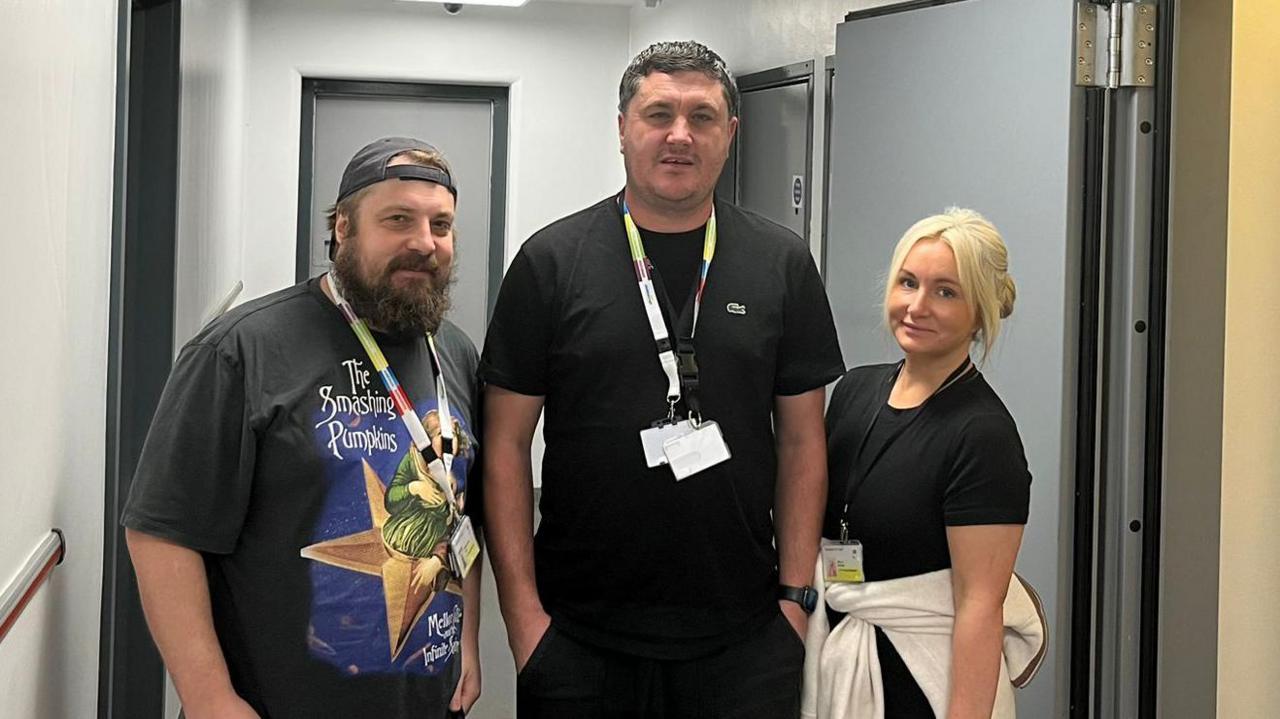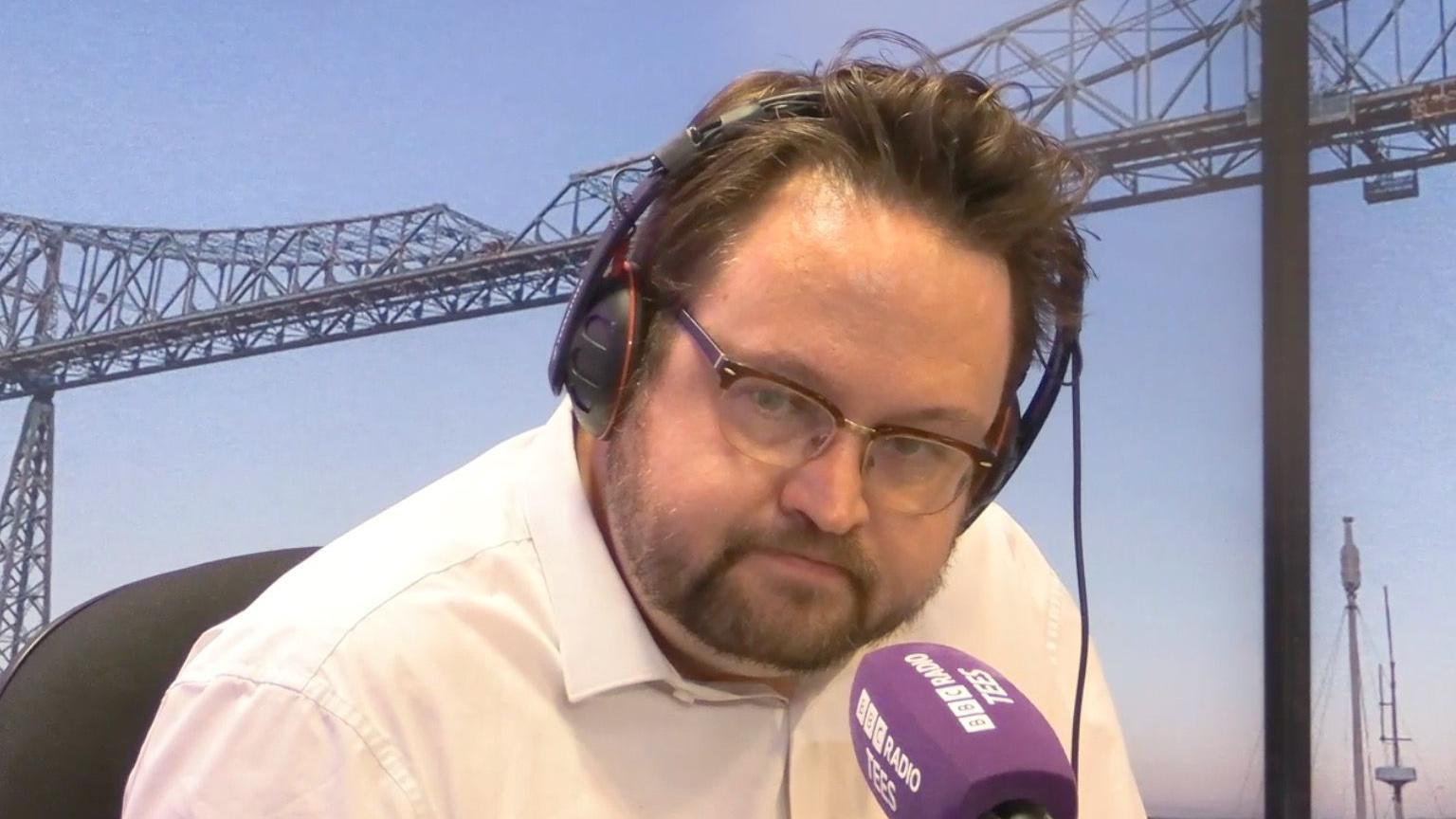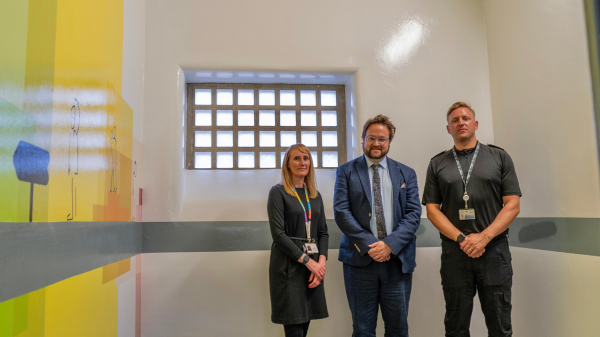School knife crime lessons 'miss most offenders'

The custody navigator team was set up three years ago
- Published
Attempts to tackle youth knife crime by visiting schools have no effect on the majority of young offenders who are no longer in education, a specialist team has warned.
Custody navigators in Middlesbrough, who speak to young people when they are arrested or brought in for questioning, say 70% are aged between 15 and 17 but no longer in school.
Will Swinburne, from Cleveland Police's youth custody suite, said safeguarding for those teenagers who fall out of the education system "is non-existent".
The team said figures from 2024 showed a re-offending rate for those who spoke to a custody navigator after their first crime was 8%, against a national re-offending rate of 32.5%.
Custody navigators support people aged between 10 and 24, talk with them one-on-one to discuss the issues they are facing and try to understand the reasons for offending and reduce it.
They can direct the youngsters towards support services and offer follow-up visits at home.
The team has spoken to 1,700 of the 2,300 young people who have been in the Cleveland custody suite since the unit formed three years ago.
'Failing across the board'
Mr Swinburne, who formerly worked in youth justice, said giving support without time constraints and paperwork was a key way of "going back to basics" and getting through to young people who have a fear of social services and the police.
"That doesn't just come from them, it's their family and communities too," he said.
"Other professionals talk at the kids but we listen to them and build up a relationship with them and it is all centred around trust."
Mr Swinburne said discussions about youth knife crime reduction can focus on speaking to children in schools, which was beneficial in diverting some potential offenders.
"But you are not hitting those that are actually doing it," he said.
"Kids who haven't been in school for years are then told to go to college and they don't do that and then they have no qualifications and can't work a job.
"There's a failing across the board which allows that to happen."

Police Commissioner Matt Storey praised the custody navigator team
Cleveland Police and Crime Commissioner Matt Storey said the custody navigator team provided a "vital layer of support" for vulnerable young people in the area.
"Between April and September this year, 146 young people received navigator support as first-time offenders," he said.
"Remarkably, only 11 of those went on to re-offend in the same period which, for me, demonstrates the importance of the right support being offered to young people at the earliest opportunity."
Follow BBC Tees on X,, external Facebook, external, Nextdoor and Instagram, external.
Get in touch
Do you have a story suggestion for BBC Tees?
More stories like this
- Published19 July 2024

- Published2 January

- Published19 July
